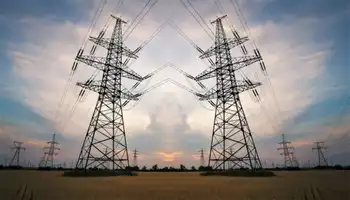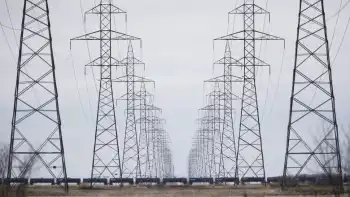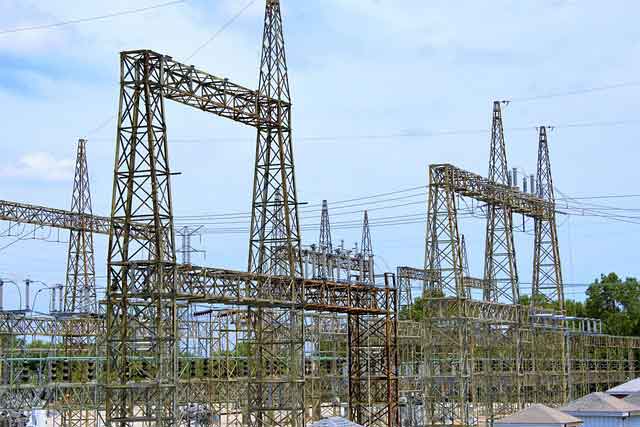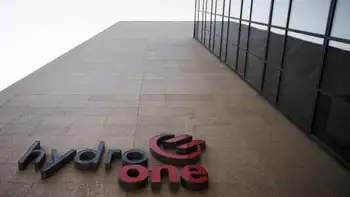Nuclear recycling system could cut arms risk
Nuclear experts say the proposed Advanced Recycling Center (ARC) could help to solve some of the biggest worries as the world looks to build more than 100 nuclear reactors to curb greenhouse gas emissions while ensuring energy supply.
"It's very clever," said Tim Stone, KPMG's Corporate Finance Partner.
"The principles have been known for a long time but the overall package is very neat.... A positive part of this is burning the worst radioactive waste," said Stone, who advises the British government on nuclear matters.
The drawbacks of the system by GE Hitachi Nuclear Energy are that the fast reactors involved are very costly and the reprocessing technology involves handling highly radioactive material yet to be proven on industrial scale.
The ARC would include GE Hitachi's fourth generation PRISM sodium-cooled fast reactors and an electrometallurgical separation process that would make a new form of fuel from spent fuel rods without separating plutonium.
GE Hitachi says the ARC will cut radioactive waste as it can extract by up to 90 percent of the energy in uranium, instead of the 2-3 percent that widely used light water reactors do.
"It allows you to think about different designs for long-term waste storage and disposal," said Lisa Price, a senior executive of GE Hitachi unit Nuclear Fuel Cycle.
"As you are able to unlock the energy, you reduce the amount of storage time and disposal time. And you have much less high-level waste," she told Reuters on the sidelines of a conference in London.
Experts say it could be of particular interest for countries like the United States, which is home to the world's biggest fleet of nuclear reactors but where the government put on hold a plan to build the Yucca Mountain repository.
Price said the ARC would have the additional advantage of not extracting plutonium, which can be used for nuclear weapons.
Current reprocessing methods, deployed in countries like France, Britain or Japan, extract uranium, plutonium and fission products separately from spent fuel rods.
"Recycling does not need to separate plutonium at all. So it does not ever come out in a form that could be used for ill gain. And that's a major advantage from a non-proliferation point of view," Price said.
Experts say there are no customers yet for fourth generation reactors such as GE Hitachi's PRISM, but there has been enough experience to prove most of the technology since the 1950s.
The challenge lies in the high costs of building fast reactors, they say, particularly as utilities generally do not include nuclear waste disposal costs in their investment decisions as, in most countries, governments take on the burden.
Companies are therefore less likely to be persuaded by the cost savings on waste storage.
More research and development is required for fabricating new fast reactor fuel from feedstocks that contain highly radioactive fission products. Any such processes would need very strict safety measures, which would increase costs.
World Nuclear Association (WNA) data shows about 50 reactors are under construction, with most belonging to the second generation of reactors and a few — like GE Hitachi's ABWR, Areva's EPR, and Toshiba-Westinghouse's AP-1000 — to the third.
The new fast reactors would belong to a fourth generation.
"A lot of the technology on which sodium fast reactors are based has already been demonstrated in the past," said Tim Abram, professor of nuclear fuel technology at Manchester University in Britain.
"The big challenge is: can we make it economic? Today, the answer is no, so this remains one of the main goals of the Generation IV initiative," he said, adding a European study in the 1990s showed fast reactors would cost about 20 percent more than conventional reactors.
But Ian Hore-Lacy of the WNA said there was increasing interest in fast reactors because they could recycle elements that normally became high-level waste.
Fuel reprocessing, like GE Hitachi's electrometallurgical process, was the area of the technology that was least well proven, Hore-Lacy said.
Abram agreed, saying: "On a relatively small scale, the electrometallurgical reprocessing technology has been shown to work."
"It's conceptually relatively easy to describe. But because the fuel is very radioactive, all of the fuel manufacturing operations would have to be done in very heavily shielded facilities, and remotely, using robotic manipulation. Nobody has demonstrated it at industrial scales yet."
GE Hitachi says it could develop the technology in 10-15 years as it has been working on it since the 1980s, partly funded by the U.S. government.
It would be also economic, particularly if the disposal costs of nuclear waste from other existing technologies are taken into account.
"If you factor in long term storage, then the economics support recycling, and even reprocessing," GE Hitachi's Price said. "The long term disposal is going to be very expensive."
Related News
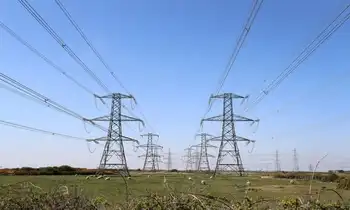
National Grid warns of short supply of electricity over next few days
LONDON - National Grid has warned that Britain’s electricity will be in short supply over the next few days after a string of unplanned power plant outages and unusually low wind speeds this week.
The electricity system operator said it will take action to “make sure there is enough generation” during the cold weather spell to prevent a second major blackout in as many years.
“Unusually low wind output coinciding with a number of generator outages means the cushion of spare capacity we operate the system with has been reduced,” the company told its Twitter followers.
“We’re exploring measures and actions to make…


